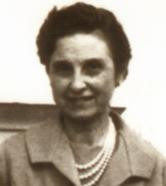Edwina de Andrade
Настоящее имя: Edwina de Andrade
Об исполнителе:
Born in 1893, in São João da Boa Vista, and in this city he lived for all his life, residing, for a long time, in the countryside. She was a cheerful and dynamic person. As a child she manifested her artistic vein. She learned music with her father, who taught her to play the piano, an instrument considered "noble" in those days, in the early twentieth century. But the girl liked guitar, which, besides not having the nobility of the piano, had the peja of vulgar instrument, only played in taverns. She became self-taught and, despite the restrictions of the time, learned to play the guitar alone, the instrument of her passion, which will accompany her throughout her life. She had an active participation, something unheard of at the time, for a woman in the cultural life of São João da Boa Vista, organizing musical shows, "saraus" plays. The great majority of these events were presented at the Municipal Theater. She made more than 500 musical compositions, all for guitar and the great majority related to simple country life, folklore, São João da Boa Vista and patriotic exaltation. His compositions include "Canoeiro", "N'é mentira, não", "Meu São João". The songs "Caterete" and "Hei Boi", became nationally known when being recorded and released by Inesita Barroso. Already the song "Canoeiro", sung by Jandira Cassiano, was theme of the film "João Negrinho", in 1958 and was interpreted, later, by Heleninha Silveira and the Demonios da Garoa. Edwina received several honors, both in São João da Boa Vista and in São Paulo. She married Armando Ribeiro de Andrade at the age of 19. She was honored as an Honorary Member of the Academy of Letters of São João da Boa Vista, on November 15, 1975.
